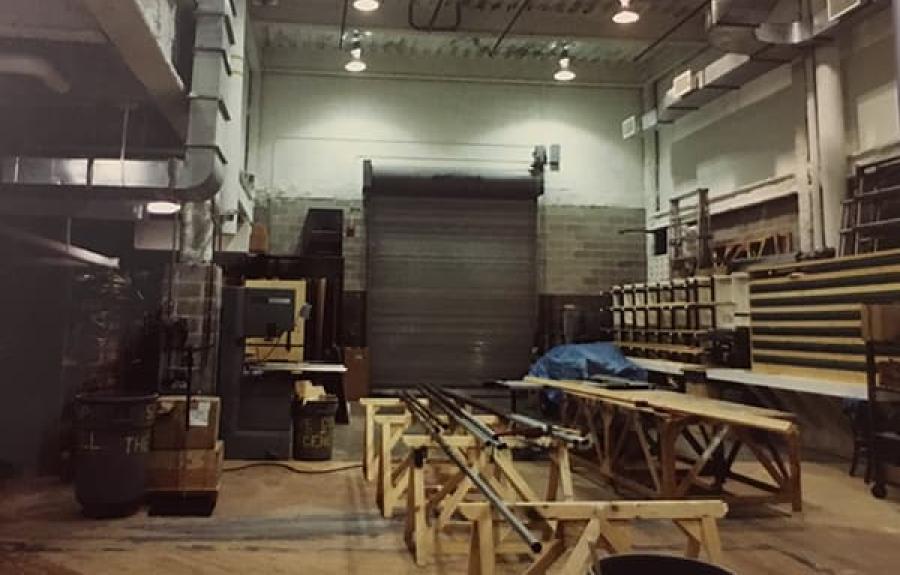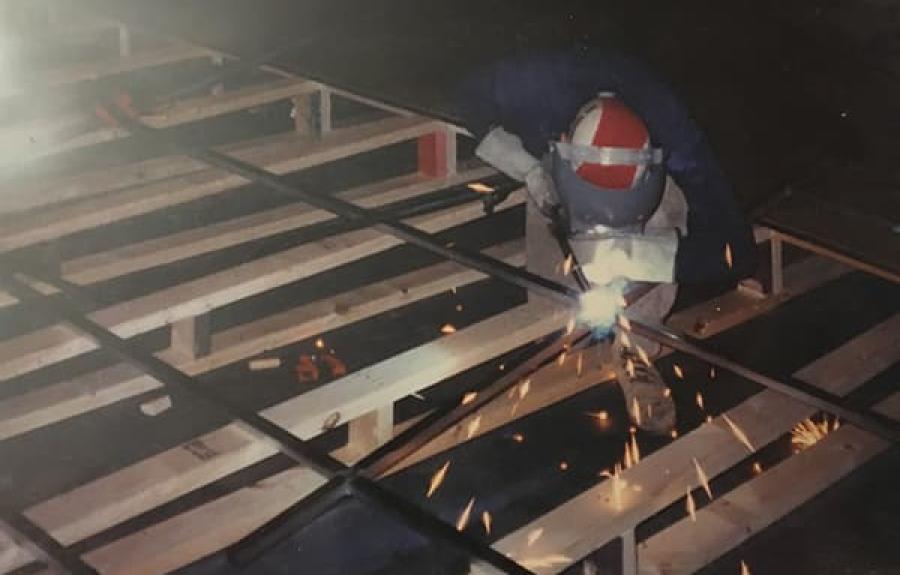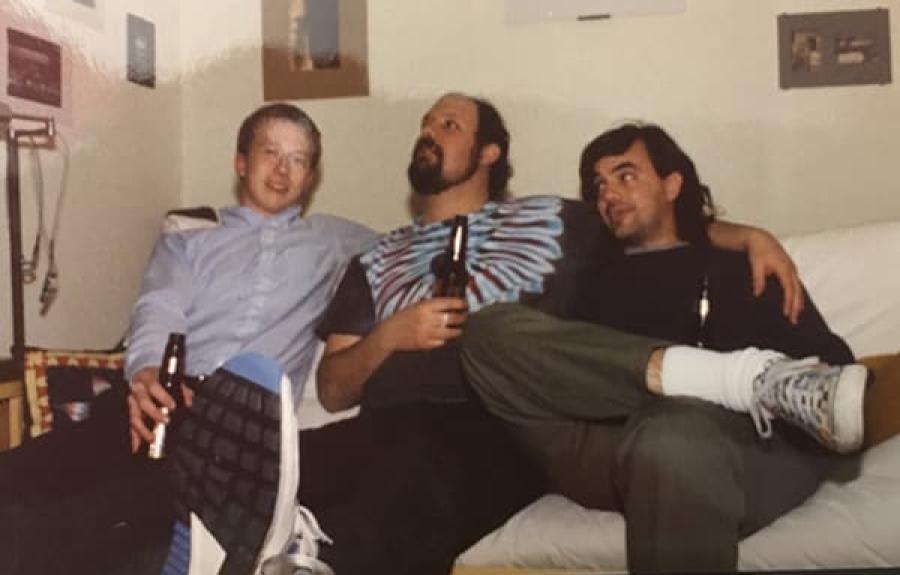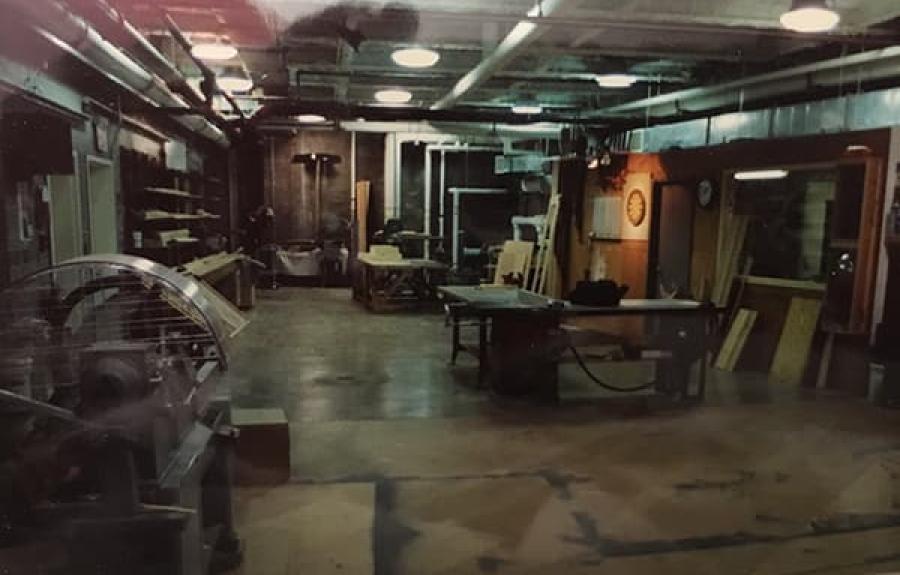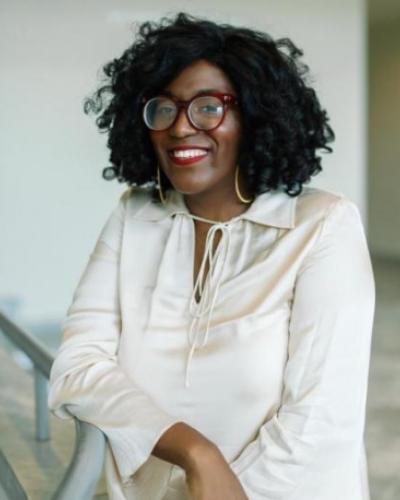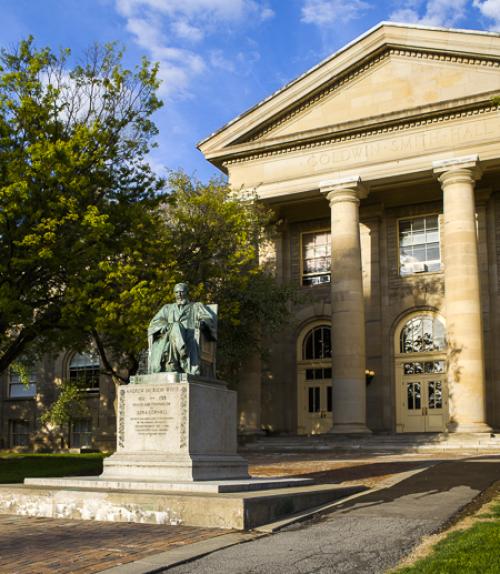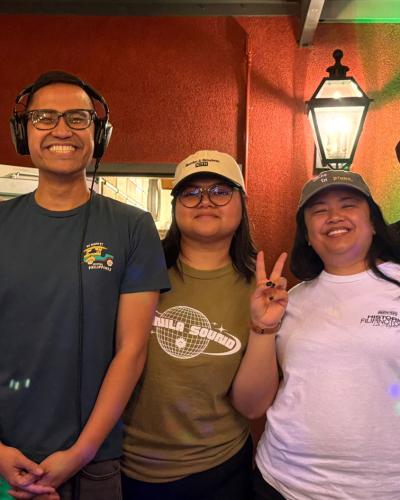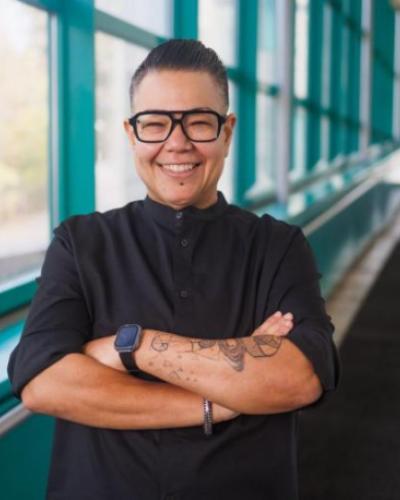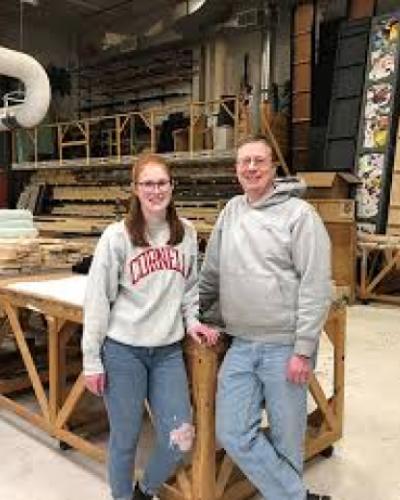Elizabeth Sherman is a sophomore in the College of Engineering majoring in civil engineering. After working tech throughout high school, Elizabeth joined the Department of ' (PMA) scene shop at the Schwartz Center for the Performing Arts, the same shop in which her father Matthew Sherman '91 worked as an undergraduate. Elizabeth and her father answered our questions about their shared passion for theatre, what the early days of the Schwartz Center were like, and how skills gained in the scene shop prove useful outside of theatre.
How did you get involved with the shop?
Elizabeth Sherman: I got involved with the shop when I came for Cornell Days. My dad drove me, and we parked in the structure behind the Schwartz. He wanted to go inside and see what had changed in the shop. Unbeknownst to either of us, Dick Archer still worked there, and he offered me a job for the following fall.
Matthew Sherman: When I started at Cornell as a freshman, I was looking for things to participate in, and I volunteered at the theatre to run the lighting board for the first show of the season. After working nights for a week, I apparently caught the eye of Bill Ashdown, who was the shop supervisor. He came over to me and asked if I had a job on campus. As it so happened, I was eligible for work-study as part of my financial aid package. I hadn’t been able to find anything, and I was getting nervous about it. I said “Sure, but I haven’t found anything…” He offered me a job on the spot, and I was incredulous; I think I actually said “I just volunteered to work here for something like 30 hours last week, but you want to pay me instead?” and he said “Yep.” The rest is history, and I ended up spending the next four years there learning a lot from Bill Ashdown, Steve Brookhouse, and Dick Archer.
The Schwartz Center's scene shop in its early years. Photo provided.
Did your father influence your decision to work in the shop?
ES: Yes, greatly. His interest in theatre got me to go to the first tech signup in the sixth grade, and my passion grew from there.
MS: All I did was make an introduction and help provide an opportunity; Liz has earned everything that she has gotten from it.
Does working in the shop connect to your major?
ES: My major is in civil engineering, and I hope to concentrate in structural engineering. Drawing up plans for things definitely connects to my eventual need to analyze force diagrams and draw up and edit blueprints for larger structures in the future.
MS: I am also a civil engineer, with a specialty in construction materials and contractor support. Having had that time “with a hammer in my hand” or laying weld bead, rigging strange things, or trying to turn a director’s vision into reality has provided huge insight for my work. Some of the trickiest engineering is in light-framed “stick-built” construction, like we use in the theatre. You really get an appreciation for the way the forces flow through the structure. Also, knowing that actors will be running around, stomping, and jumping on the scenery makes you appreciate that you must build things correctly to be safe.
Glenn Petit welding in the scene shop in the early days of the Schwartz Center. Photo provided.
Matthew, can you comment on what it was like being among the first students to work in the shop at the Schwartz Center when it opened in 1989?
MS: I have a lot of great memories and great stories. In my freshman year we were still in the basement of Willard Straight Hall and it was pretty cool going down that back staircase—it was kind of like what the theater in Hogwarts would have been like. It was a fun and quirky space. Going over to the Schwartz was amazing and such a huge technology leap forward—we had to learn how to get all the new technology to work and how we could use it to do things that we couldn’t have imagined at the Straight. We basically had to build out the shop, install all the fixtures and tools, and figure out how to make the space work. Every time we did something it was a new experience and we had to figure it all out. I was there when we retrofitted the elevator into the pit, and we also helped all the other shops and departments learn to “fit” into the space, building special tech tables, work aids, and fixtures. Even having all-new materials wasn’t easy—the brand-new marley floors were too slippery for the dancers, so we had to “distress” them and dirty them up; not all of the tech worked; and we had to build a lot of custom tools for things like the fly rail and prop shop. It was amazing.
The best memories are about the people though. The Dick Archer stories were especially legendary. My boss from the time, Steve Brookhouse, and I could tell you loads of stories. For example, we had to have an “on-call” carpenter in the house during tech week in case anything broke, so we would kind of rotate through staffing it. One night, Steve and I were sitting in the house and an excited stagehand comes tearing out from backstage, stops in front of us, says “Don’t worry! It was only a small fire!” then without pause turns and runs backstage again. Steve and I look at each other, and he says “I guess we should go check that out.…” It turned out to be an unhappy coincidence of someone dumping leftover flash powder in a trash can and someone else throwing out a lit cigarette butt; the resulting hole in the side of the trash barrel was impressive.
All in all, I wouldn’t trade it for the world. It was lots of fun with lots of good people. Steve even ended up being the best man at my wedding when my wife and I were married on campus in ’94.
Matthew Sherman, Steve Brookhouse (assistant technical director at the time; now working at Ithaca High School), and Glenn Petit (carpenter at the time). Photo provided.
Elizabeth, how do you feel about working in the same shop so many years later? How does your father feel about it?
ES: I think it’s really cool! I try to be conscious of my privilege as a legacy student and try to work really hard to earn my place in the shop. I learn a lot and love showing him around when he comes to visit, and talk about our latest projects over the phone. Last semester, we found some of his old time cards when we were cleaning out the tool room!
MS: I am really proud of her, following her passion and doing it so well. Even more, I am proud of how she uses her skills. When Liz came home on spring break last year and again over last winter break, she took it upon herself to go back and help her old high school program “do it right.” It really feels like a part of the Cornell tradition and it will be something we have in common forever. I hope that it gives her all the same types of experiences working in different situations and with different materials that I had. I know that the practical, “hands-on” experience that you get in a place like that is invaluable later in life.
The Schwartz Center's scene shop in its early years. Photo provided.
What would you tell someone who is interested in working in the shop?
ES: Definitely come stop by or take the production lab, PMA 1610! I think it’s really rewarding and always interesting, as you build something new entirely from scratch every few months. It’s a really collaborative environment and new talent is always appreciated!
MS: Try out volunteering for a production and get a feel for the people, the things that need doing, and the space. If you like it, maybe take the production lab or apply for a job. Whenever you are working, remember that it is always about being safe and thoughtful, willing to think, and being open to learning new things. Keep in mind that it isn’t always fun: someone has to clean the brushes after thirty TA151 [the old theater production lab course] students come in for three hours and leave a bucket of paint brushes, vacuum the walls of the flex, rehang five pipes with new soft goods and then go to the rail and rebalance the counterweight plates for hours, or rip 100 sheets of Masonite into four‑inch strips to make the “hardwood floor” over the entire stage that the director wanted.
Julian Robison '20 is a communications assistant in the Department of .

